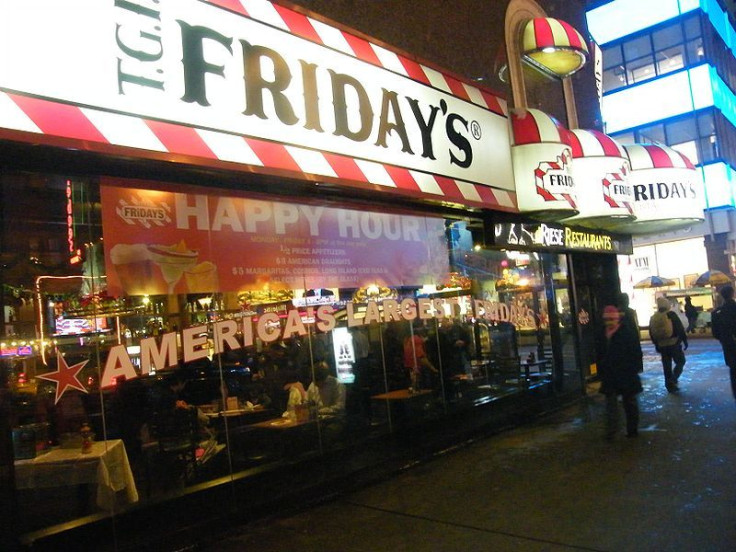TGI Fridays Fined $500K For Replacing Premium Liquor With Cheap Booze: Is ‘Premium’ Really Better?

On Wednesday, TGI Friday's restaurants in New Jersey received a fine to the tune of $500,000 for replacing the premium liquors they advertised in their drinks with cheap, generic brands. Thirteen TGI Friday's restaurants were among 29 in the state for "illegally practicing booze switching."
New Jersey's Division of Alcoholic Beverage Control launched a crackdown on liquor scamming called "Operation Swill." The restaurants fined were part of Briad Restaurant Group, a company that manages restaurants and hotel chains. According to USA Today, Briad is the largest TGI Friday's franchise in the United States. The group agreed Wednesday to pay the fine and not contest charges that eight of its restaurants were serving cheap alcohol substitutes to customers who believed they were paying for quality, premium liquor.
"Briad's restaurants were scamming customers by serving them a cheap substitute for what they ordered," said Acting Attorney General Hoffman. "This unlawful practice took advantage of consumers who were cheated out of what they thought they were purchasing."
But was it more than just a scam? What, exactly, are customers paying for when they throw down a few extra bucks for "premium" alcohol?
According to LiveScience, there are several benefits to choosing premium alcohol over the cheap stuff. Firstly, the taste of premium liquors and wines is smoother and less harsh. In addition, the distilling, filtering, and aging processes for higher-end brands add to the quality. The more manual distillation process for premium liquors removes more impurities than the industrialized processes of the cheaper brands.
"If you use higher quality grapes, grains and fruits, you end up with a better quality product than using industrial alcohol and synthetic ingredients," said Alexis Kahn, director of beverage education at The International Culinary Center in New York. "Using high-quality natural ingredients is a lot more expensive than the alternative."
In connection with its offenses, Briad will pay $400,000 to the Division of Alcoholic Beverage Control and $100,000 in investigative costs.
"This fine should send a clear message to every bar and restaurant throughout New Jersey that customers should get what they pay for every time without exception," said Hoffman.



























